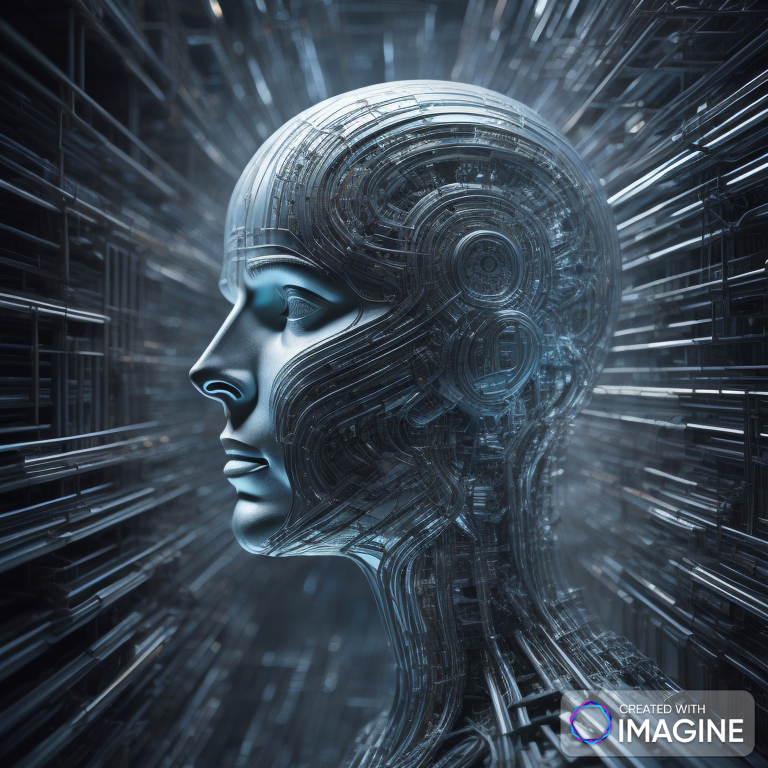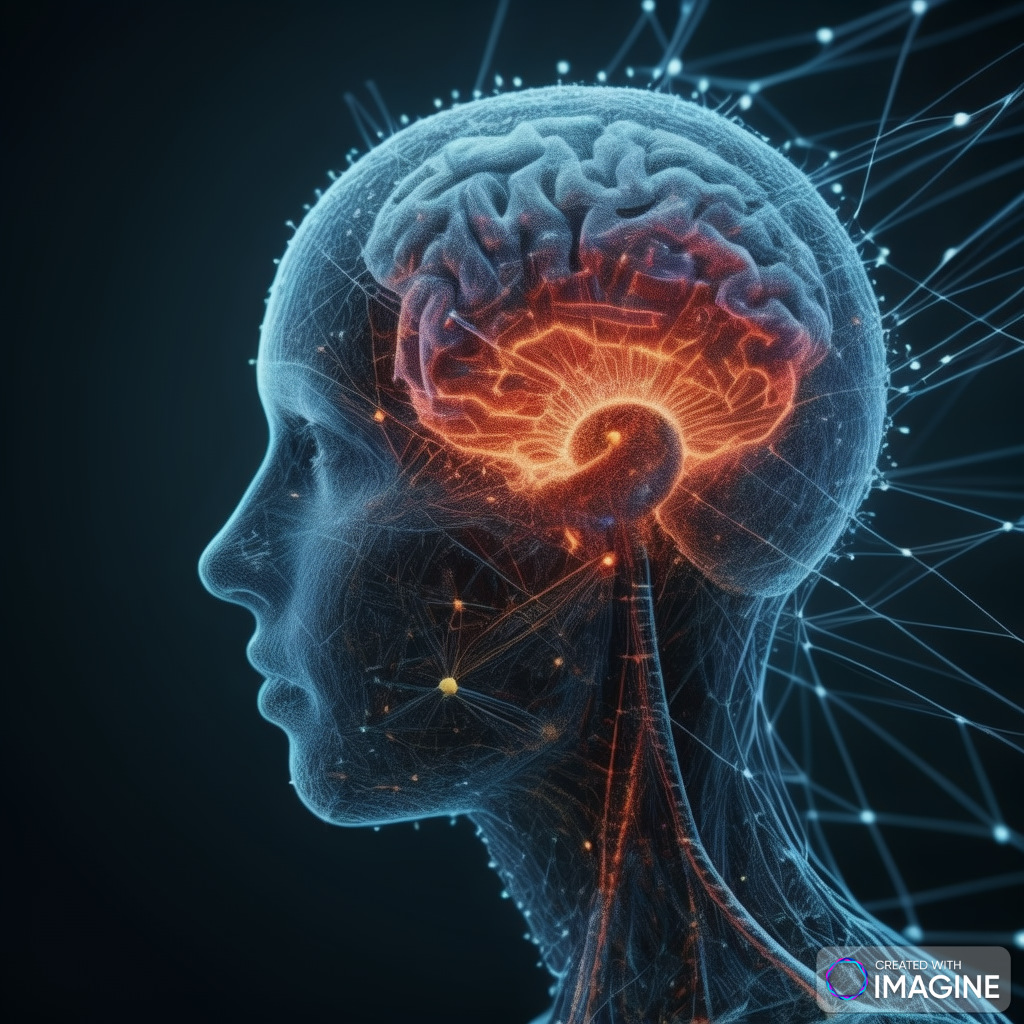In the ever-evolving landscape of scientific research, one force is shaping the way we explore the unknown and expand the boundaries of human knowledge: Artificial Intelligence (AI). With its ability to analyze vast datasets, identify patterns, and make predictions, AI has emerged as a game-changer in various scientific disciplines. In this article, we will delve into the profound impact of AI on scientific research, exploring its applications, challenges, and the human touch that drives this transformative journey.
The Power of Discovery
At the heart of scientific research lies the quest for discovery. Scientists endeavor to understand the complexities of our world, from the smallest subatomic particles to the vast expanse of the universe. However, this pursuit often involves navigating through mountains of data, a task that can be daunting and time-consuming.
This is where AI steps in as a powerful ally. Its ability to process and analyze data at speeds beyond human capacity is revolutionizing research. Whether it’s sifting through genetic sequences to identify disease markers or analyzing climate data to predict weather patterns, AI accelerates the pace of discovery.
AI in Medicine
One of the most promising applications of AI in scientific research is in the field of medicine. The human body is an intricate system, and deciphering its complexities often requires analyzing vast amounts of patient data, medical records, and imaging. AI-driven algorithms can assist medical professionals in diagnosing diseases, identifying treatment options, and even predicting patient outcomes.
For instance, AI-powered radiology tools can analyze medical images, such as X-rays and MRIs, with remarkable accuracy, helping doctors detect diseases like cancer in their early stages. This not only saves lives but also reduces the burden on healthcare systems.
The Human Touch
While AI is undoubtedly a formidable tool in scientific research, it’s essential to remember that it is a tool wielded by humans. The human touch remains integral in defining the research questions, designing experiments, and interpreting AI-generated results.
Scientists work in synergy with AI, guiding it towards the right questions and providing context to its findings. In the realm of healthcare, doctors use AI as a diagnostic aid, but the final decisions regarding patient care are made by experienced medical professionals who consider a myriad of factors, including patient history and individual circumstances.
The Role of Artificial intelligence in Drug discovery
AI is revolutionizing scientific research in ways that were once thought impossible. From drug discovery to climate modeling, AI is transforming the way we approach scientific problems and opening up new avenues for innovation and discovery.
One of the key areas where AI is making a significant impact is in drug discovery. By leveraging machine learning algorithms, researchers are able to analyze vast amounts of data and identify potential drug candidates more quickly and accurately than ever before. This has the potential to significantly reduce the time and cost associated with bringing new drugs to market, which could have a major impact on public health.
Artificial Intelligence in climate modeling
AI is also being used to improve climate modeling, which is critical for understanding the impacts of climate change and developing effective mitigation strategies. By analyzing large datasets and running complex simulations, researchers are able to gain new insights into the Earth’s climate system and make more accurate predictions about future changes.
Artificial Intelligence in material science
Another area where AI is making a significant impact is in materials science. By using machine learning algorithms to analyze large datasets of materials properties, researchers are able to identify new materials with novel properties that could have important applications in fields such as energy storage, electronics, and more.
Artificial intelligence in Environmental Science
Environmental science is another field benefiting immensely from AI. With climate change becoming an urgent global concern, AI plays a pivotal role in monitoring and mitigating its effects. AI-driven models can process vast datasets related to temperature, atmospheric conditions, and carbon emissions, providing insights that inform climate policies and actions.
In this context, the human touch is crucial in translating these insights into actionable solutions. Environmental scientists and policymakers collaborate to devise strategies that combat climate change, reduce pollution, and protect our planet for future generations.
Artificial intelligence Limitations and Ethical Considerations
While AI has revolutionized scientific research, it’s not without its limitations and ethical considerations. AI models are only as good as the data they are trained on, and biases present in data can be perpetuated in AI-driven research. Maintaining data privacy and ensuring fairness in AI applications are challenges that must be addressed.
Moreover, the “black-box” nature of some AI algorithms can make it difficult to understand the rationale behind their decisions. This opacity raises concerns about transparency, especially in fields like healthcare and law, where decisions have profound consequences for individuals’ lives.
For instance, AI-powered radiology tools can analyze medical images, such as X-rays and MRIs, with remarkable accuracy, helping doctors detect diseases like cancer in their early stages. This not only saves lives but also reduces the burden on healthcare systems.
The Human Touch
While AI is undoubtedly a formidable tool in scientific research, it’s essential to remember that it is a tool wielded by humans. The human touch remains integral in defining the research questions, designing experiments, and interpreting AI-generated results.
Scientists work in synergy with AI, guiding it towards the right questions and providing context to its findings. In the realm of healthcare, doctors use AI as a diagnostic aid, but the final decisions regarding patient care are made by experienced medical professionals who consider a myriad of factors, including patient history and individual circumstances.
Artificial intelligence in Environmental Science
Environmental science is another field benefiting immensely from AI. With climate change becoming an urgent global concern, AI plays a pivotal role in monitoring and mitigating its effects. AI-driven models can process vast datasets related to temperature, atmospheric conditions, and carbon emissions, providing insights that inform climate policies and actions.
In this context, the human touch is crucial in translating these insights into actionable solutions. Environmental scientists and policymakers collaborate to devise strategies that combat climate change, reduce pollution, and protect our planet for future generations.
Artificial intelligence Limitations and Ethical Considerations
While AI has revolutionized scientific research, it’s not without its limitations and ethical considerations. AI models are only as good as the data they are trained on, and biases present in data can be perpetuated in AI-driven research. Maintaining data privacy and ensuring fairness in AI applications are challenges that must be addressed.
Moreover, the “black-box” nature of some AI algorithms can make it difficult to understand the rationale behind their decisions. This opacity raises concerns about transparency, especially in fields like healthcare and law, where decisions have profound consequences for individuals’ lives.
Conclusion: The Future of Scientific Research
As we stand at the intersection of AI and scientific research, the potential for discovery is limitless. AI empowers scientists to explore uncharted territories, find solutions to complex problems, and advance human knowledge. However, it’s vital to strike a balance between the power of AI and the wisdom of human expertise.
The role of AI in scientific research is not one of replacement but augmentation. It complements the human touch, making research faster and more efficient. It assists in data analysis, accelerates the pace of discovery, and provides insights that were once inaccessible. Yet, it is the scientists, researchers, and experts who infuse research with purpose, meaning, and ethical considerations.
In this dynamic partnership between AI and humans, we unlock the future of discovery—a future where the boundaries of knowledge continue to expand, and where humanity’s quest to understand the universe is propelled forward by the synergy of human intelligence and artificial intelligence.
In conclusion, the integration of AI into scientific research is not just a technological advancement; it’s a testament to the enduring spirit of human curiosity and ingenuity. Together, we are poised to unravel the mysteries of the universe, improve healthcare, and safeguard our planet for generations to come. In the journey of discovery, AI is the wind in our sails, and humanity remains the captain of the ship.







